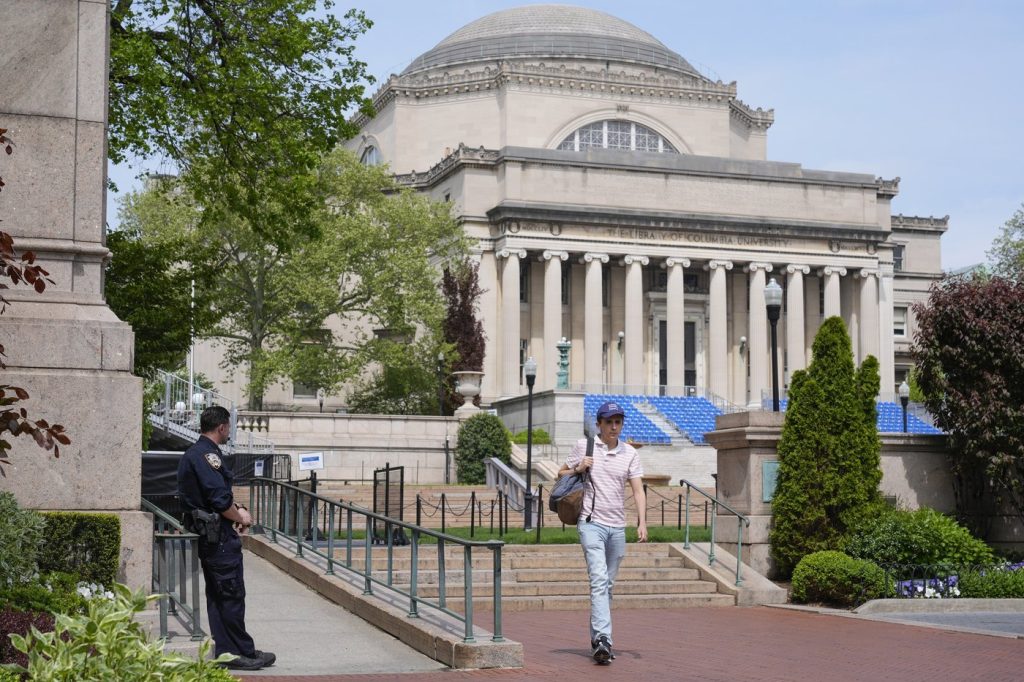After decades of collaboration with the U.S. government, colleges are encountering new uncertainties surrounding their federal funding. The Trump administration has been using this financial support as leverage to promote compliance with its agenda, consequentially cutting off funds to notable institutions such as Columbia University and the University of Pennsylvania. As a result, universities across the nation are grappling with reductions in research grants from federal bodies.
This tightening of resources emphasizes the dependency of American higher education on federal support, with some research universities relying on federal grants and contracts for nearly half of their total revenue, according to an Associated Press analysis. The situation has been described as a crisis, jeopardizing not only the institutions themselves but also the broader landscape of scientific and medical research in the U.S., which has historically been coupled with higher education since World War II.
Jonathan Friedman, managing director of free expression programs at PEN America, reflects on these challenges, stating, “It feels like any day, any university could step out of line in some way and then have all of their funding pulled.”
An Associated Press analysis examined federal funding for nearly 100 colleges that are currently under scrutiny for allegedly promoting programs that align with diversity, equity, and inclusion, or for not adequately addressing issues of antisemitism. These institutions collectively received more than $33 billion in federal revenue during the 2022-2023 academic year, excluding additional billions from federal student aid.
The analysis indicates that for most schools, 10% to 13% of their revenue stemmed from federal contracts or research funding, while prestigious research universities saw federal funding equate to nearly half of their revenue. Johns Hopkins University is a prime example, having received $4 billion in federal funds, comprising close to 40% of its revenue. A significant portion of this funding has been directed towards defense research, encompassing projects like missile design and submarine technology, in addition to supporting medical research in valuable areas such as immunology and neuroscience.
However, Johns Hopkins now faces an antisemitism investigation that threatens its federal funding and has already begun to feel the repercussions from cuts in research grants from the National Institutes of Health and other agencies. The university recently announced 2,200 layoffs, marking a significant impact on its operations.
Columbia University emerged as a particular target for Trump, who withheld $400 million in federal funds, citing the institution’s alleged failure to curb antisemitism during protests, a claim disputed by participants. In response to demands from the administration, Columbia has begun to alter its policies with the intent to restore its funding, a move that has drawn criticism for perceived compromises on academic freedom.
In the previous academic year, Columbia derived around 20% of its revenue from federal sources, totaling approximately $1.2 billion. A recent audit shows that a substantial portion of Columbia's federal funding was earmarked for research and development, with significant amounts allocated to global AIDS programs, cancer biology, and drug abuse research.
Under existing federal law, the Education Department typically is required to follow a formal process before terminating funding due to civil rights violations. This includes a formal finding of noncompliance, a hearing, and notifications to Congress before any funds are withdrawn. However, the Trump administration appears to be implementing a new enforcement strategy that emphasizes quicker punitive actions with minimal negotiation or due process, as noted by legal experts.
The situation has further escalated at the University of Pennsylvania, where the administration suspended $175 million in federal funding linked to a transgender swimmer incident. This action was framed as part of an overarching review of federal funds allocated to universities. Michael Pillera from the Lawyers' Committee for Civil Rights Under Law remarked, “It looks like much of the playbook is intimidation, more so than actual substantiated legal findings.”
These funding cuts and instabilities have prompted some universities to reduce the number of graduate students admitted, directly impacting career pathways in research areas, particularly where students rely on federal grants for scholarships and stipends. Purdue University senior Alyssa Johnson indicated that uncertainties surrounding federal funding influenced her decision to shift her academic focus away from pursuing graduate research on amphibian diseases.










